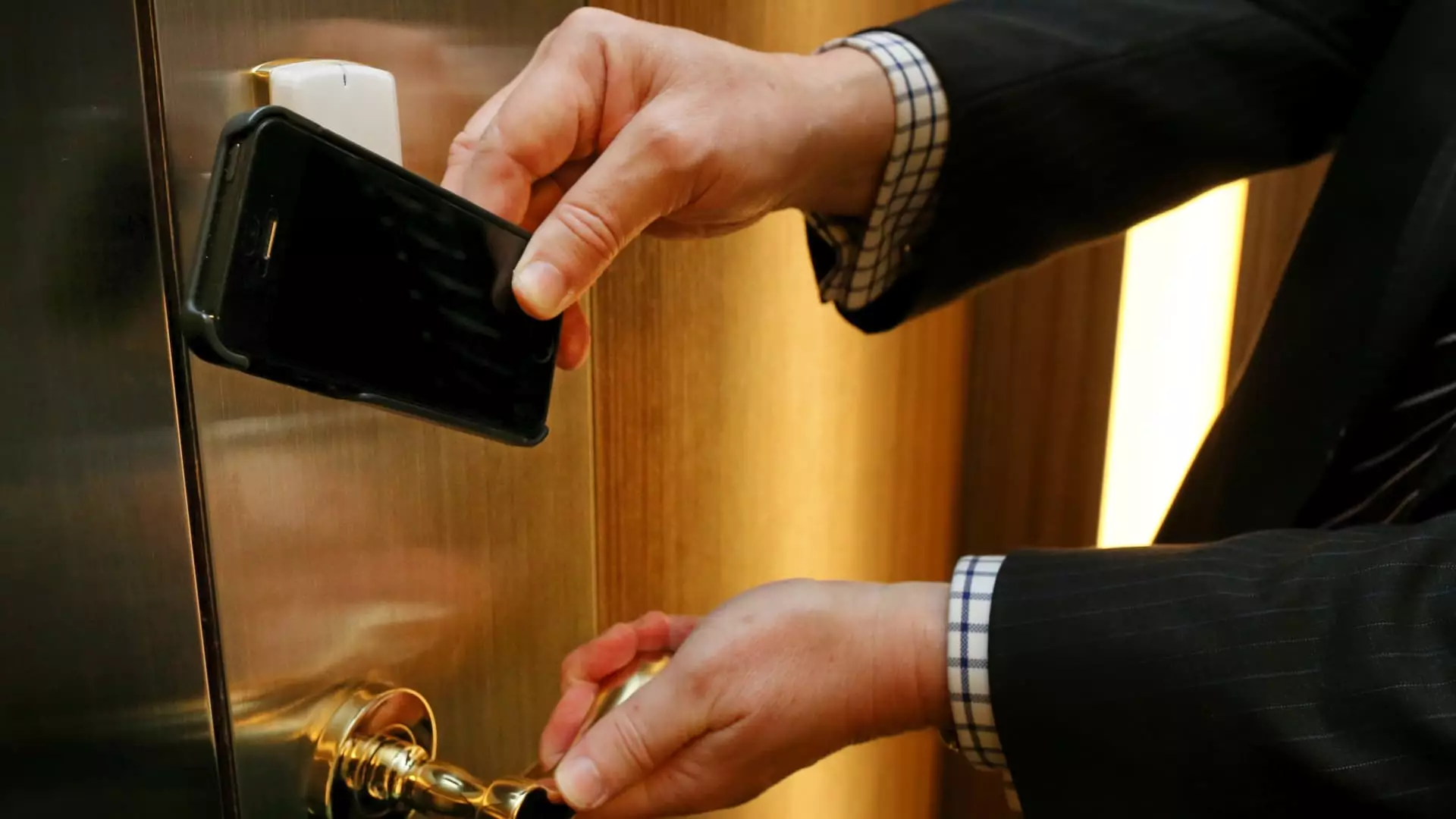The rapid advancement of technology has prompted many hotel chains to revolutionize the way guests access their rooms. With the emergence of digital options like Apple Wallet and Google Wallet apps, the traditional plastic room key is quickly becoming obsolete. The shift towards touchless technology has been further accelerated by the onset of the pandemic, where touch was deemed taboo.
Despite the convenience and efficiency that digital keys offer, cybersecurity concerns have also loomed large over the transition. Researchers recently discovered a vulnerability in plastic hotel keys that could potentially expose millions of keys to hackers. This revelation has pushed hotel chains to expedite their plans to upgrade room door locks to safeguard guest safety and privacy.
While major U.S. hotel chains have embraced digital key technology for several years, the transition has not been without its challenges. Some security experts caution that keyless systems may introduce new threats that need to be managed effectively. The implementation of security control policies such as multifactor authentication (MFA) adds an extra layer of protection but may deter guests who seek a seamless experience.
Despite the benefits of digital keys, data from J.D. Power’s research indicates a slow adoption rate among hotel guests. Only a small percentage of guests use digital keys during their stays, with the majority still opting for plastic key cards. The reluctance to fully embrace digital entry systems stems from factors such as compatibility issues, costs, and ingrained habits.
However, proponents of digital keys argue that the real promise lies in the convenience they offer. While digital cards may not necessarily be more secure than their plastic counterparts, they provide a superior user experience. The ease of managing credentials and access through smartphones outweighs the perceived security risks for many guests.
As hotel chains navigate the transition to digital keys, they are faced with considerations of safety, convenience, and cost-effectiveness. While some guests may still prefer the physicality of plastic key cards, the trend towards digitalization appears to be inevitable. With the ability to push patches and updates seamlessly, digital keys offer a level of agility and adaptability that traditional key cards lack.
As technology continues to evolve, the hospitality industry must strike a delicate balance between innovation and security. While digital keys offer a glimpse into the future of room access, the importance of maintaining robust cybersecurity measures cannot be overstated. Hotel chains must navigate these challenges thoughtfully to deliver a seamless and secure experience for their guests.

